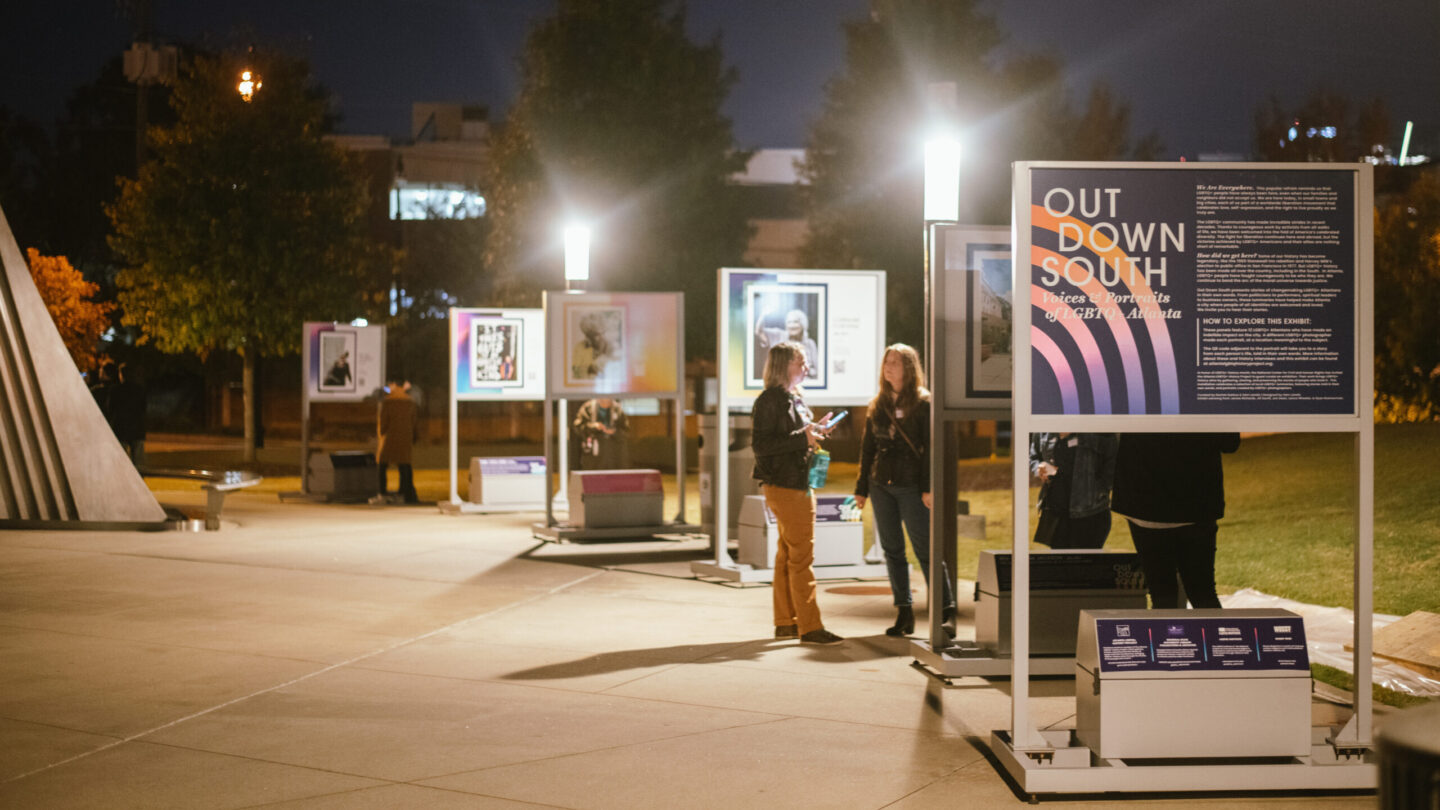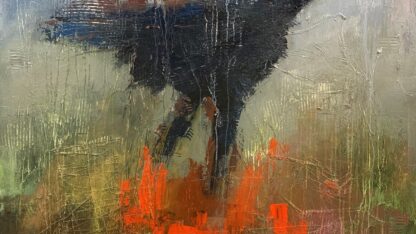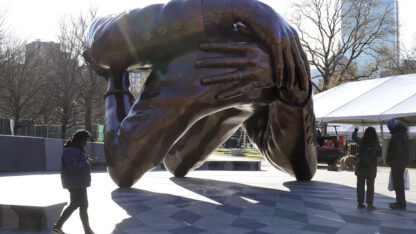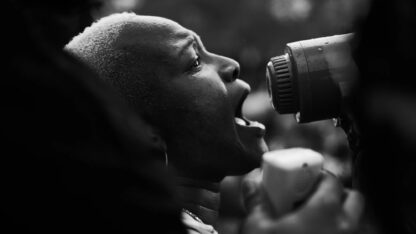'Out Down South' outdoor exhibit observes years of rich Atlanta LGBTQ+ history

With the Respect for Marriage Act recently passed by Congress, the rights of LGBTQ+ Americans inch closer to equality, though much still remains to be done in welcoming and protecting our queer community members. “Out Down South” is an outdoor exhibit celebrating Atlanta’s LGBTQ+ history through portraiture and oral histories told with local queer heroes’ own voices.
Free and open to the public, the exhibition is on view through October at the National Center for Civil and Human Rights. Co-curators Rachel Garbus and Samuel Landis joined “City Lights” host Lois Reitzes to share more about the South’s rich queer history, showcased in these personal accounts.
Interview highlights:
An outdoor, interactive oral history experience:
“It’s actually accessible and free to the public, whether or not you go into the Center. It’s outside around the fountain… and in each stanchion, we have these beautiful portraits that have been taken of our honored subjects, as we call them, who are people who have had a role in furthering LGBTQ culture or rights or have added impact on our community somehow. So people from Kim Jackson, the first out lesbian state senator, to Julie Rhoad…the creator of the trans flag, who lives up in Marietta,” Landis explained. “You have these beautiful portraits, and then beside them, you have a QR code that you can scan and listen to a little snippet of their oral history… It’s a really beautiful interactive experience where you get to see a beautiful photo of them and also get to hear a little bit from them in their own voice.”
Recognizing a need to honor heroes of LGBTQ activism:
“I was formerly at the National Center for Civil and Human Rights, and around the time that I started as a designer at the Center, I got to work on a project with Julie Rhoad,” Landis said. “The Center, at the time, was thinking about possibly acquiring the AIDS Quilt and the ‘Names Project,’ and so I worked on a proposal with her, and it just was such an amazing experience because I had been learning about the AIDS Quilt, and learning about AIDS, and Cleve Jones, and now to meet this person who had worked with Cleve Jones and had taken care of the quilt, and to find out that it had lived here in Atlanta… I just was kind of dumbfounded, that it just opened my world to see that we have our own history here in Atlanta, our own LGBTQ history.”
Landis added, “I went to a panel that [Rhoad] spoke on, and I just was like, ‘I wish I could make all my friends come and sit down here and listen to these stories because I think that they’re so important.’ Not only just to know our history, but to find a source of strength and resilience… The world is not perfectly equal just because we have marriage equality, and we still need to find sources of strength as we continue the fight for equality and equity.”
Assuring the first-hand accounts of history’s changemakers aren’t forgotten:
“What can be frustrating is that so many oral histories get recorded, and then they get archived, and while they’re very well-preserved by amazing archivists all over the Southeast and all over the country – we have amazing archivists here – they so often just exist in an archive, and don’t have an opportunity to be shared,” said Garbus. “What really drew me to this project was the opportunity to really bring those oral histories out from an archive and present them to the public in an accessible way.”
“Hearing somebody tell a story from their own life in their own words, with their own dialect and their own way of remembering, I think, is so powerful, and it really creates a completely different way of engaging with history,” Garbus said. “So I thought that what we created here was an opportunity both to showcase these amazing portraits, these beautiful visuals done by LGBTQ+ artists, connected with these stories that really touch deeply on people’s personal lives.”
How queer Southern solidarity shares common cause with other minorities:
“In our oral history with Rabbi [Joshua] Lesser, he talked about the ways that in the South, marginalized communities, be they Black communities, Jewish communities, queer communities, have really understood innately that they can’t survive separately; that part of advocating for one group means building coalitions with each other,” said Garbus. “I think that really comes through in a lot of these individual stories, where there’s been so much coalition-building, and faith has been a really grounding part of that.”
“Out Down South” is free and open to the public, and can be experienced through Oct. 2023 outside the National Center for Civil and Human Rights. More information is available at https://www.civilandhumanrights.org/exhibit/lgbtq/








